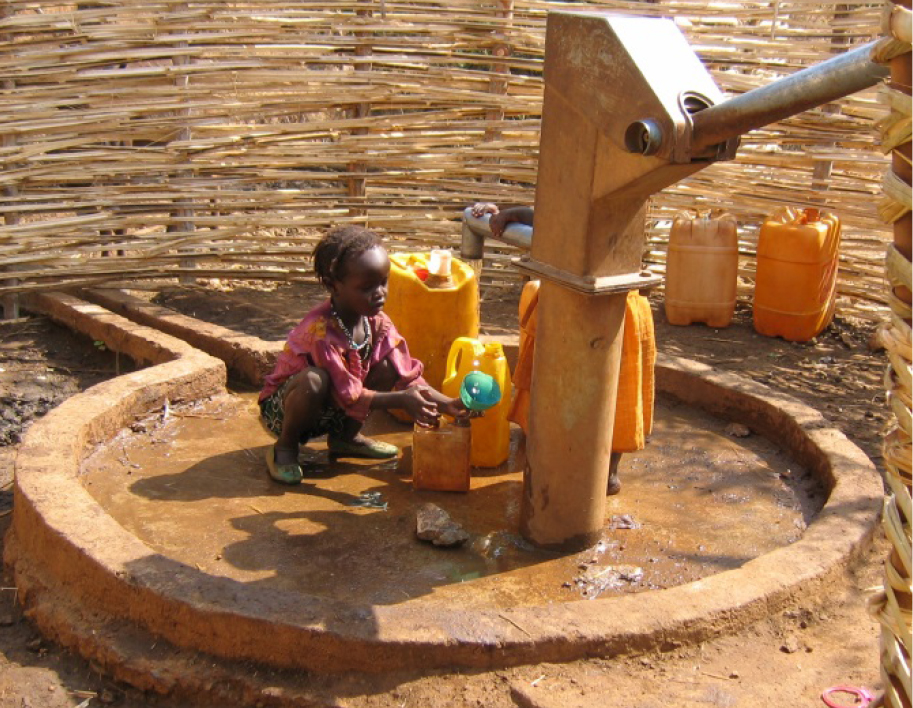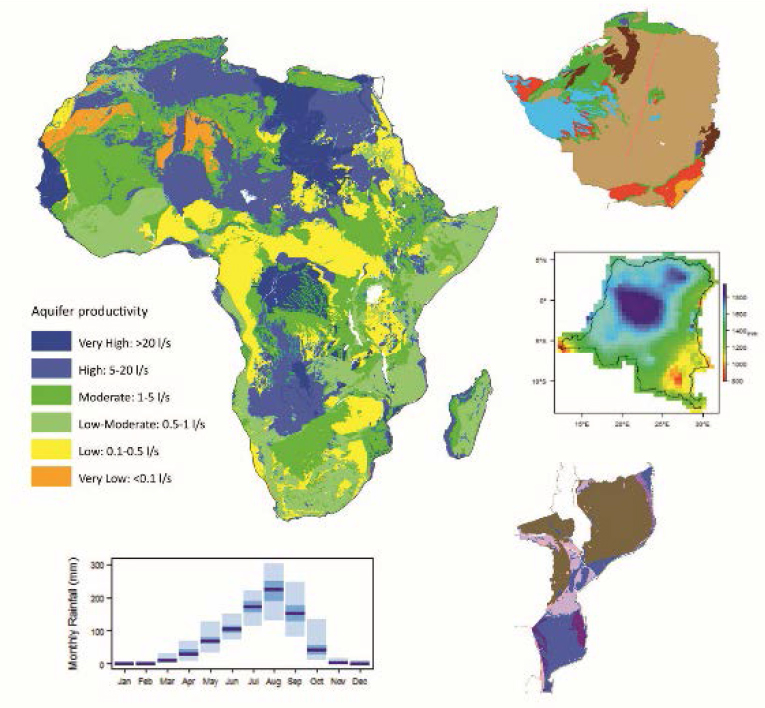Making African groundwater visible
25/02/2019 By BGS Press
BGS is today launching the Africa Groundwater Atlas at a major water conference in Abidjan, Cote d’Ivoire. Funded by DFID/NERC/ESRC’s UPGro research programme, the Atlas is a gateway to groundwater information for 51 African countries, unlocking the potential of groundwater resources in Africa.
The successful, sustainable development of groundwater is vital for future safe water supplies in Africa – but relies on a good understanding of hydrogeology. The Africa Groundwater Atlas is helping water supply planners and practitioners find the high quality country scale African groundwater information they need.
The Atlas provides a consistent overview of groundwater resources, status and management in each country, making information more accessible and allowing comparison between countries. Maps and summaries of key aquifers are supported by facts and figures on climate, surface water, soil and land cover, and background on key hydrogeological issues like groundwater quality. Links to more detailed information help those who need to know more. Also available is the online Africa Groundwater Literature Archive, where you can search by map or keyword for thousands of reports and articles about African groundwater, and access many of them freely online.
The British Geological Survey developed the Africa Groundwater Atlas in partnership with the International Association of Hydrogeologists and groundwater experts across Africa. The Atlas will continue to be improved in response to the needs of users.

The Africa Groundwater Atlas has country-scale groundwater and supporting information.
Dr Seifu Kebede, Head of School of Earth Sciences at Addis Ababa University, is a co-author of the Atlas’s Ethiopia page. He says that ‘this comprehensive Atlas will definitely contribute to the development and management of groundwater resources for a sustainable socio-economic outcome in Africa’.
Professor Richard Carter of Richard Carter and Associates, formerly of WaterAid and Cranfield University, says ‘difficulties in accessing data and information about groundwater are often cited as constraints to sustainable water development in Africa. This invaluable resource is a huge investment that will provide a rich resource for development professionals in the years ahead in pursuit of the UN sustainable development goals’.
Peter Ball, a water borehole drilling engineer with 40 years’ experience in Africa, says ‘it’s a great resource – I love the standard layout and fullness of information. It’s all well referenced – so the expert can ‘dig deeper’ as required. I use the Atlas as a primary reference and regularly share its information with others’.
- The Atlas is being launched at the 7th Rural Water Supply Network (RWSN) Forum https://rwsnforum7.wordpress.com/.
- UPGro website: www.upgro.org
For further details or to arrange media interviews please contact:
BGS Press Office, Keyworth, Nottingham, NG12 5GG
Telephone: +44 (0)7790 607 010.
(Please do not text this number. We accept calls or email only.)
E-mail: bgspress@bgs.ac.uk
The following are available for interview:
- Brighid Ó Dochartaigh, British Geological Survey
- Kirsty Upton, British Geological Survey
- Alan MacDonald, British Geological Survey
For additional information go to: www.bgs.ac.uk
The British Geological Survey
The British Geological Survey (BGS), a component body of the Natural Environment Research Council (NERC), is the nation’s principal supplier of objective, impartial and up-to-date geological expertise and information for decision making for governmental, commercial and individual users. The BGS maintains and develops the nation’s understanding of its geology to improve policy making, enhance national wealth and reduce risk. It also collaborates with the national and international scientific community in carrying out research in strategic areas, including energy and natural resources, our vulnerability to environmental change and hazards, and our general knowledge of the Earth system. More about the BGS can be found at www.bgs.ac.uk
The Natural Environment Research Council
The Natural Environment Research Council (NERC) is the UK’s main agency for funding and managing world-class research, training and knowledge exchange in the environmental sciences. It coordinates some of the world’s most exciting research projects, tackling major issues such as climate change, food security, environmental influences on human health, the genetic make-up of life on earth, and much more. NERC receives around £300 million a year from the government’s science budget, which it uses to fund research and training in universities and its own research centres. www.nerc.ac.uk



